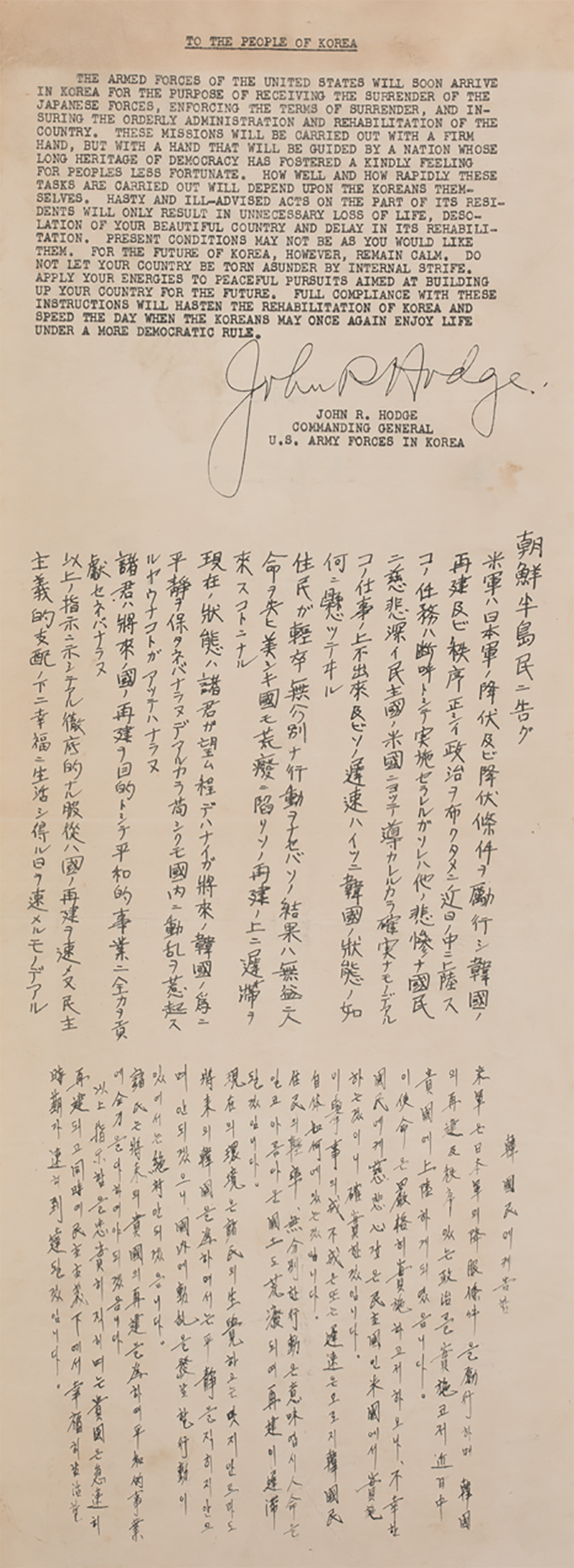
After liberation, the movement to establish a new country was also active in Jeju. Although the People’s Committees in other regions were either dissolved by the USAMGIK or operated under different names, the Jeju People’s Committee remained intact and enjoyed strong support. This was largely because the pro-Japanese faction was relatively weak in Jeju and many people who had fought for independence against the Japanese returned to their hometowns and became members of the People’s Committee in Jeju. There was also more social cohesion in Jeju where 80 percent of farmers were independent landholders in contrast to the national average of 40 percent. Furthermore, Jeju also had a strong community spirit that fed into the People’s Committee as an autonomous organization.
Most importantly, the People’s Committee invested heavily in education and actively helped to establish schools on the island. The People’s Committee in Jeju demonstrated leadership in the period following independence. The USAMGIK ruled the country in a larger sense, but the People’s Committee had more direct influence in Jeju people’s lives. Therefore, the USAMGIK considered the Jeju People’s Committee an important partner, and sent the organization official documents as it did to other public offices. E. Grant Meade, a USAMGIK officer, said, “The Jeju People’s Committee was the only political party in the island and the only organization acting like a government.”
However, as time went by, mounting conflict arose between the USAMGIK and the Jeju People’s Committee. Instead of fully enjoying their independence, people were being victimized by the same oppressive police officers and corrupt public officials as under Japanese colonial authority. The only difference was that now the oppressors had positions under the USAMGIK. The conflict increased in seriousness on March 1, 1947, when the so-called March 1 Shooting Incident occurred on the anniversary of the March 1 Independence Movement of 1919 against Japanese rule.
In every aspect, the Jeju People’s Committee was the only political party and the only government in Jeju.